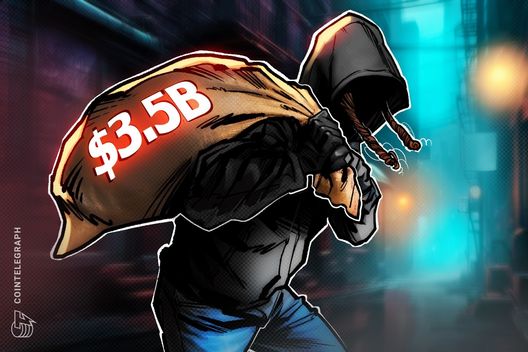

In a stunning revelation, blockchain intelligence platform Arkham Intel has uncovered a massive Bitcoin heist that occurred in December 2020, but went unreported for years. The theft, which involved 127,426 BTC, was perpetrated against LuBian, a China-based mining pool, and represents the largest cryptocurrency hack in history. At the time of the incident, the stolen Bitcoins were valued at approximately $3.5 billion. However, with the surge in Bitcoin's price since then, the current value of the stolen assets has ballooned to an estimated $14.5 billion.
LuBian, the victim of this unprecedented cybercrime, was a significant player in the Bitcoin mining landscape, controlling roughly 6% of the global Bitcoin network as of 2020, with facilities in China and Iran. Arkham's on-chain analysis revealed that the mining pool lost over 90% of its BTC holdings in the attack on December 28, 2020. In the days that followed, further illicit transactions saw approximately $6 million worth of BTC and USDT siphoned from a LuBian address active on the Bitcoin Omni layer. Following the attack, LuBian transferred its remaining assets to recovery wallets.
Neither LuBian nor the hacker has publicly acknowledged the incident, making Arkham's findings the first documented case of this massive attack. After the theft, LuBian attempted to communicate with the hacker, embedding OP_RETURN messages to the hacker's wallet addresses in 1,516 separate transactions, costing them about 1.4 BTC. These messages were essentially demands for the return of the stolen funds.
Experts suggest that LuBian may have used weak algorithms in private key generation, making them vulnerable to brute-force attacks. The stolen Bitcoin has remained largely untouched since the hack, with the last recorded movement being a consolidation transaction in July 2024. The hacker is now the 13th largest Bitcoin holder in the world, even surpassing the Mt. Gox hacker.
The implications of this long-undetected heist are far-reaching. It highlights the critical need for proactive safety measures and robust private key management within the cryptocurrency space. Experts emphasize that blockchain transparency alone is insufficient without proactive monitoring and analysis to detect such anomalies. The incident has drawn comparisons to the Mt. Gox hack, demonstrating how prolonged undetected thefts can erode market confidence and expose systemic weaknesses in security infrastructure.
The discovery of this massive Bitcoin theft underscores the importance of blockchain analytics platforms like Arkham Intelligence in uncovering illicit activities and promoting transparency within the cryptocurrency ecosystem. Arkham's AI-powered platform is designed to deanonymize the blockchain and provide valuable insights into on-chain data, enabling a wide range of use cases, including trading, compliance, research, and portfolio tracking. By identifying real-world entities behind blockchain addresses, Arkham helps to bring accountability and security to the often-opaque world of cryptocurrency transactions.